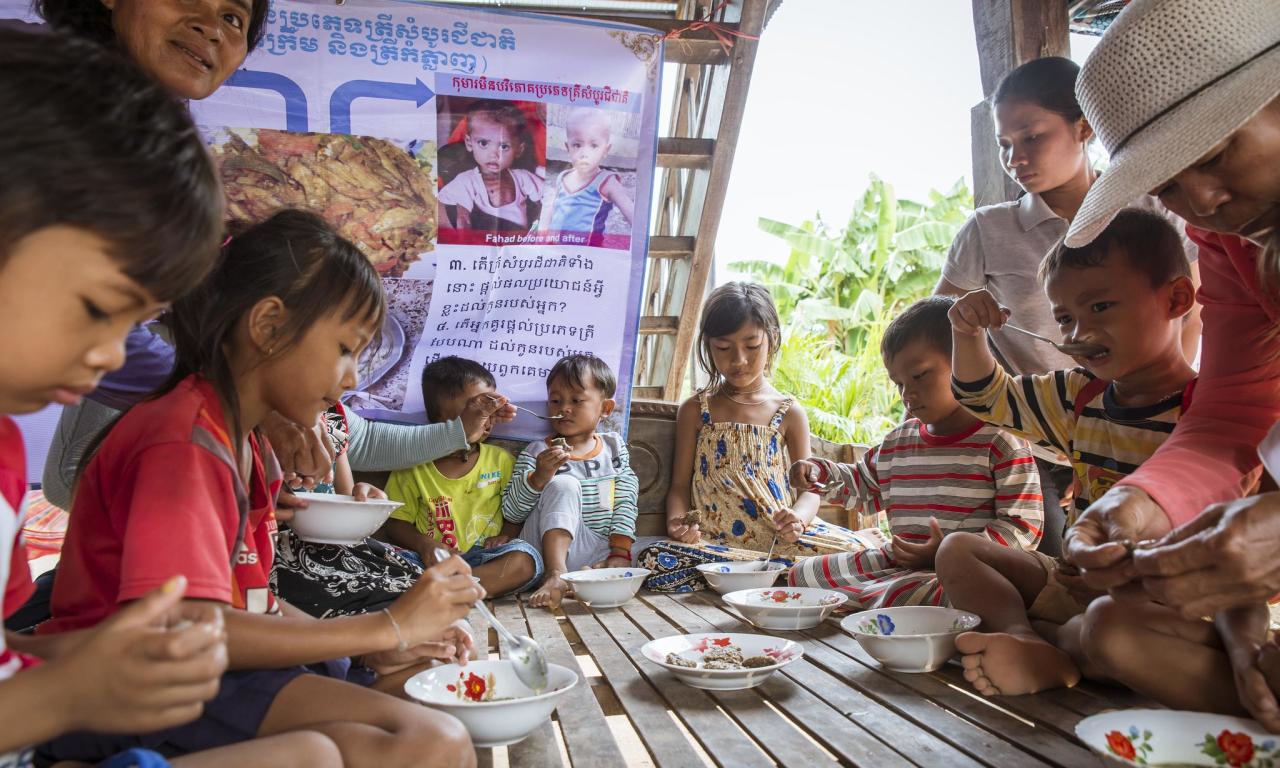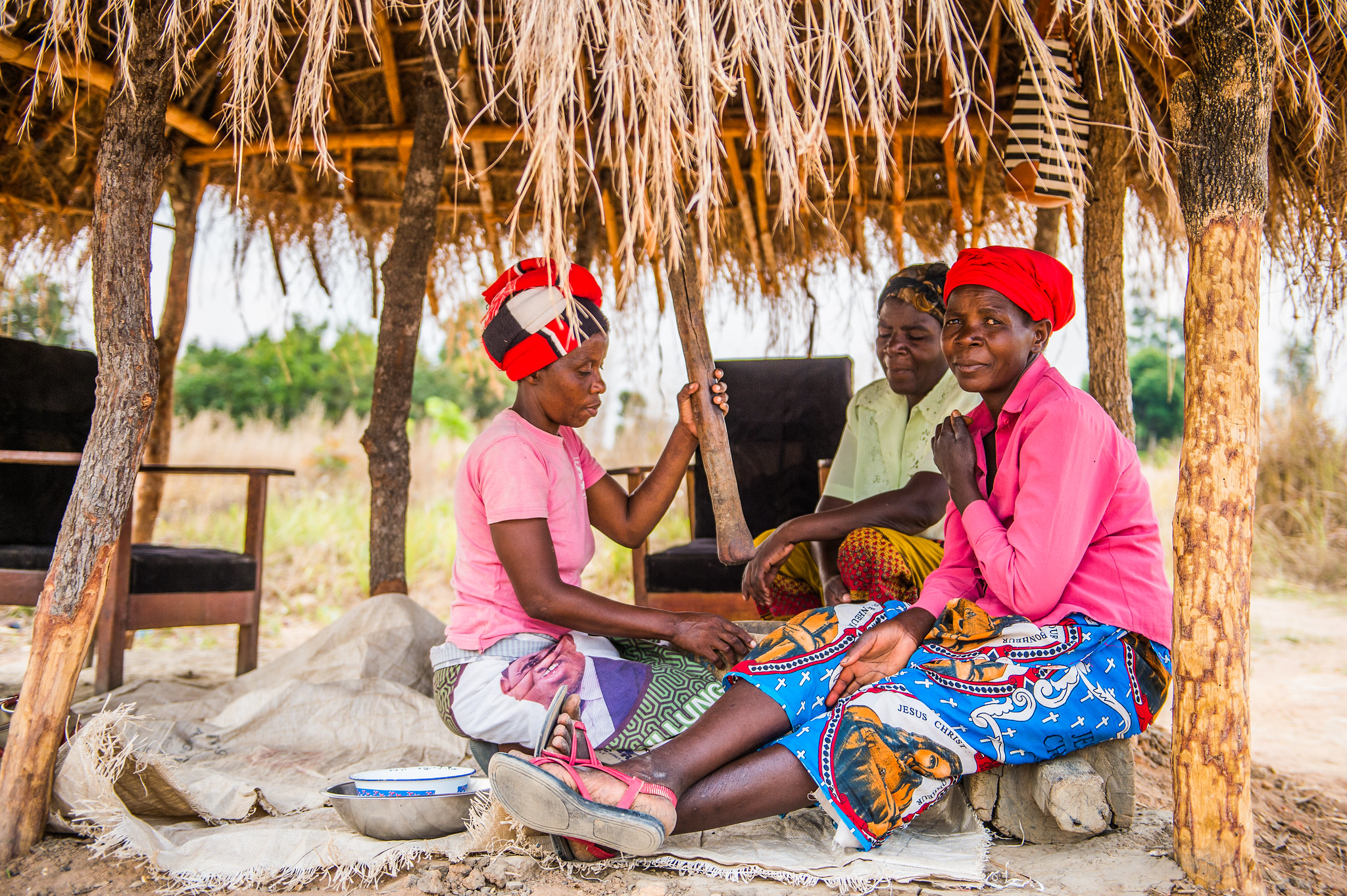
The presenters considered novel approaches to connect research with actionable policies that drive the transformation of food systems with aquatic foods.
To transform food systems in support of safe, sustainable and nutritious diets for all, aquatic foods must be prioritized in the upcoming UN Food Systems Summit, said experts in a recent Food Systems Dialogue hosted by the Norwegian leadership of the Global Action Network and WorldFish.
Food systems dialogues explore the potential for food systems transformation to fulfill multiple Sustainable Development Goals. Convened by international governments and research institutions, food dialogues are a powerful opportunity to meaningly engage diverse stakeholders and facilitate multi-disciplinary collaboration.
The dialogue’s panelists included Action Track leaders for the UN Food Systems Summit, research experts and policy specialists who explored innovative aquatic food system initiatives from around the world. The presenters considered novel approaches to connect research with actionable policies that drive the transformation of food systems with aquatic foods.
Aquatic food systems offer substantial opportunities for boosting the health, livelihoods and wellbeing of the poor and vulnerable. Fish and aquatic foods provide essential nutrients such as protein, omega 3, vitamins and minerals to the diets of millions of people, many in food insecure regions, reducing the risk of micronutrient deficiencies and non-communicable diseases.
“If done with health, livelihoods, climate and environmental resilience in mind, increasing the production and consumption of aquatic foods is a true ‘no regrets’ policy and should be one of the key recommendations of the 2021 UN Food Systems Summit,” said panelist Dr. Lawrence Haddad, Chair of Action Track 1: Access to Safe and Nutritious Food for All.
Innovative and holistic approaches to aquatic food systems

A holistic approach to food systems is needed to ensure the availability of nutritious aquatic foods to all people and offer a sustainable source of income. Fisheries and aquaculture already support the livelihoods of around 820 million people worldwide, 90 percent of whom work in the small-scale sector and half of which are women.
While global per fish capita consumption is increasing, and aquatic foods are one of the world’s most highly traded food commodities, inequitable systems continue to lead to disparities in access. Local production of nutritious aquatic foods must be improved in order to meet growing demand and nutritional deficiencies in low-income nations.
“It is not just about producing more. It is also about ensuring equitable access and utilization, to ensure nutritional benefits for all. We need to focus on the quality of outputs: produce better, more, and ensure that aquatic foods are accessible to all in order to meet dietary needs and preferences,” said Dr. Manuel Barange, the Director of the Fisheries and Aquaculture Policy at FAO.
Panelists stressed the importance of integrated novel approaches to facilitate such transformative changes. Examples included the dissemination of accessible knowledge tools that can shape consumer preferences and provide nutritional information on local aquatic foods, the adoption of an ecosystem approach to fisheries management and forging partnerships with governments to develop national dietary guidelines.
“Accurate nutrient information on local aquatic foods forms the basis of many programs and policies, making them more nutrition-sensitive and cost-effective, and enables the development of meaningful guidelines that improve dietary adequacy,” said panelist Prof. Hettie Schönfeldt, AFROFOOD’s Scientific Advisor.
Dr. Arun Padiyar, WorldFish’s project manager for Sustainable Aquaculture in India, spoke of efforts to incorporate safe and sustainable aquatic foods in state-funded dietary programs. Government recognition of fish’s nutritional benefits and the development of state nutritional programs have substantially improved nutrition among vulnerable groups, including children, pregnant and lactating mothers.
“Working with the State Government of Odisha in India, WorldFish has improved access to nutritious fish species, sustained national feeding programs and supported women’s livelihoods by applying nutrition-sensitive approaches to aquatic food systems,” said panelist Padiyar.
Cooperation for effective solutions
Panelists emphasized that “healthy ocean and healthy people” can best be achieved through effective collaboration between government, industry, research and policy institutions; these multidisciplinary actors can forge an enabling environment for aquatic foods to be fully utilized, from production to consumption, in a sustainable and efficient manner.
Through the sustainable intensification of aquaculture, improved management of capture fisheries and fish value chains that reduce fish loss and waste, food and nutrition security can be enhanced within planetary boundaries, said Dr. Barange.
Policy frameworks and national food-based dietary guidelines should also recognize the full potential of disregarded low-trophic aquatic foods like jellyfish and mussels, which have low environmental impact but high nutritional value, said panelist Dr. Naoko Yamamoto, the Chair of UN Nutrition, a UN agency that operates at the intersection of multiple UN programs and policies focused on global nutrition and health.
By recognizing diverse aquatic food species in the food systems agenda, global leaders can contribute to building the sustainability, resilience and inclusivity of aquatic food systems and related value chains.
“As we are sailing through turbulent waters, it is more important than ever to unite. Through joint commitment and united dedication, we will ensure that aquatic foods can play an important role in food security and nutrition and are prominently featured in the global food systems agenda,” said Norway’s Minister of Fisheries and Seafood, Odd Emil Ingebrigtsen.
